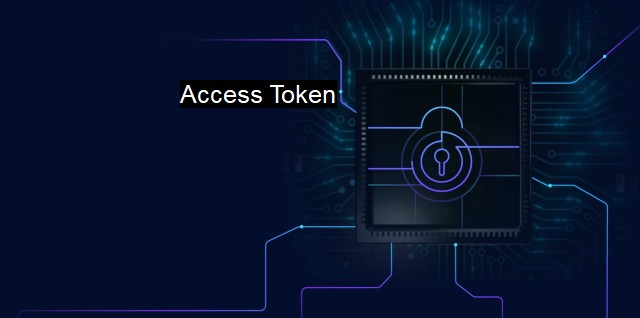What is Access Token?
The Significance of Access Tokens in Cybersecurity and Antivirus Operations: An Introduction
The concept of 'access token' carries significant importance. An access token often plays a critical role in both understanding and enhancing the security landscape of digital platforms which may contain valuable or potentially vulnerable information.Broadly speaking, an access token is a type of cryptographic key. It is an object that describes the security context of a process or a thread, or simply put, it is a piece of data that allows access to a computer resource. The structure of the key serves to encapsulate the user's protection or granting rights across a network, such as requesting information, manipulating files or directories, or engaging with system-level entities.
Access tokens are usually issued to applications or users by an authorization server with the approval of the resource owner. The resulting encoding, which may employ varying degrees and types of encryption based on particular user credibilities, provides a mechanism of access that has the enhanced fortification of a cryptographic backbone.
This form of verification offers multiple dimensions of security. First, it ensures the correct assignment and minimizing the misuse of user identity. Where traditional username-password setups only give one layer of security, often vulnerable to numerous security threats such as phishing or brute force attacks, the added sophistication of the access token process brings another solid wall of defense.
Another area where access tokens prove to be extremely valuable is in the increasing trend towards a multi-cloud environment by many businesses. As it allows faster recognition, validation, and response, access tokens can significantly shorten the time laps between possible threat detection and defensive responses by the cybersecurity teams or antivirus applications.
An essential use of the access token is seen in OAuth (Open Authorization), a popular delegable protocol for distributed digital authorization. OAuth enables third-party applications to attain limited access (compared to providing the user’s credentials) to an HTTP service RESTful web services. In OAuth, an access token provides the management functions required to grant and retract access, bundle the access scope and duration, manage approval decisions, and facilitate safe token storage.
In terms of security solutions, the cool factor about the access token is that it isn’t just limited to existing pass codes or archival data. Ostensibly, the forte of the access token strategy lies in its adaptability. It can be built to evolve past potential threats. By using customized heuristics, advanced analytics, and carefully built AI algorithms, access tokens can self-modify their verification mechanisms.
While access tokens add immense strength to the security framework, they are not impervious to security threats. Access tokens can be hijacked, and this constitutes a severe threat to application security. Hacker can use various techniques such as session hacking, cookie theft, and JSON Web Token (JWT) threats to gain unpermitted access. Therefore, critical best practices should be adopted such as: always use HTTPS, limit lifetime of tokens, and regularly rotate and revoke them.
Cybersecurity programs and antivirus software also play an important role in managing the access tokens. They can detect any unauthorized activity related to access tokens, like attempts to tamper them, thereby nullifying the possible damage.
Thus, access tokens function as a powerful means of validation and permission-granting within the realm of cybersecurity. Their application fosters better, tighter control of resources, allows diversified software systems to communicate more securely and intuitively, and ensures a heightened degree of security in an age of ever-evolving technological threats. correct management of these access tokens is of vital importance to prevent any possible breaches and security threats.

Access Token FAQs
What is an access token in cybersecurity?
An access token is a type of security credential that is issued to an application or user by a server. It is used to authenticate the identity of the user or application and grant permission to access specific resources or data.How is an access token used in antivirus software?
In antivirus software, an access token is used to restrict access to resources and data on a system. When the antivirus software is installed, it creates a low-privileged user account and assigns an access token to that account. This ensures that the antivirus software has limited access to the system and can only access files and data that it needs to perform its security functions.Why are access tokens important in cybersecurity?
Access tokens are important in cybersecurity because they ensure that only authorized users or applications have access to sensitive resources or data. By verifying the identity of the user or application and granting access only to specific resources, access tokens help prevent unauthorized access or data breaches.How can an access token be compromised in cybersecurity?
Access tokens can be compromised in cybersecurity if they are stolen or intercepted by attackers. This can happen if a user’s credentials are stolen or if an application is vulnerable to attacks such as cross-site scripting (XSS) or SQL injection. To prevent access token compromise, it is important to follow best practices for password management and ensure that applications are properly secured against common vulnerabilities.| | A | | | B | | | C | | | D | | | E | | | F | | | G | | | H | | | I | | | J | | | K | | | L | | | M | |
| | N | | | O | | | P | | | Q | | | R | | | S | | | T | | | U | | | V | | | W | | | X | | | Y | | | Z | |
| | 1 | | | 2 | | | 3 | | | 4 | | | 7 | | | 8 | | |||||||